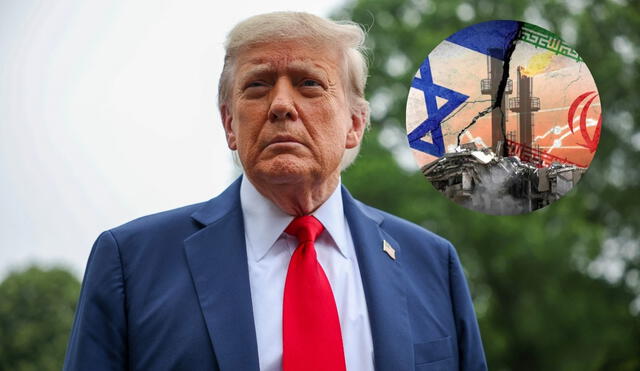Trump says Israel-Iran peace deal is possible but 'sometimes they have to fight first'
Donald Trump said he believes an agreement between Israel and Iran is possible, but commented that there are times when "they have to fight to solve their problems."

US President Donald Trump recently stated that he would like to see an agreement and that he believes there is a "good chance" of reconciliation between Israel and Iran. However, he mentioned that "sometimes they have to fight to resolve it," the President commented as he left the Oval Office for the G7 summit, which will take place in Canada in the coming days.
When Trump was asked about the possibility of de-escalating the conflict between the two countries, he responded, "I hope there is an agreement. I think it's time to reach an agreement, and we'll see what happens, but sometimes they have to fight," the President of the United States commented.
Trump says Israel and Iran respect each Other, won’t confirm ceasefire talks
President Trump also commented that he has a good diplomatic relationship with Iran and that he firmly believes that both Israel and Iran have great mutual respect. However, when asked if he had asked Israel to suspend its attacks against Iran, Trump declined to comment. "I don't mean that," the President commented.
Previously, in January of this year, President Trump had already used the phrase "fight it out" to comment on the situation between Russia and Ukraine. On that occasion, he compared the war between Ukraine and Russia to the invasion of Moscow, describing both conflicts as "a fight between children."
Trump joins G7 in Canada amid global tensions with Iran, Israel, and Russia
President Donald Trump traveled to Canada to meet with other world leaders at the G7. This event will be held in the Canadian Rockies and will coincide with a time when the summit will address topics such as the recent attacks between Iran and Israel and the conflict between Russia and Ukraine.
This meeting will mark the President's return to Canada after the controversy that arose from his calling Canada the "51st state" of the United States. It will also be Trump's diplomatic return, as it is his first international meeting since the beginning of his second presidential term.













